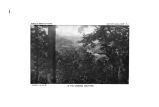| OCR Text |
Show MOONEY] LEWIS' EXPEDITION 1756 41 Indians themselves were not ready to accept the settlement. In the north the confederated tribes under Pontiac continued to war on their own account until 1765. In the South the very Cherokee who had acted as allies of the British against Fort Du Quesne, and had voluntarily offered to guard the frontier south of the Potomac, returned to rouse their tribe to resistance. • The immediate exciting cause of the trouble was an unfortunate expedition undertaken against the hostile Shawano in February, 1756, by Major Andrew Lewis ( the same who had built Fort Loudon) with some two hundred Virginia troops assisted by about one hundred Cherokee. After six weeks of fruitless tramping through the woods, with the ground covered with snow and the streams so swollen by i'ains that they lost their provisions and ammunition in crossing, they were obliged to return to the settlements in a starving condition, having killed their horses on the way. The Indian contingent had from the first been disgusted at the contempt and neglect experienced from those whom they had come to assist. The Tuscarora and others had already gone home, and the Cherokee now started to return on foot to their own country. Finding some horses running loose on the range, they appropriated them, on the theory that as they had lost their own animals, to say nothing of having risked their lives, in the service of the colonists, it was only a fair exchange. The frontiersmen took another view of the question however, attacked the returning Cherokee, and killed a number of them, variously stated at from twelve to forty, including several of their prominent men. According to Adair they also scalped and mutilated the bodies in the savage fashion to which they had become accustomed in the border wars, and brought the scalps into the settlements, where they were represented as those of French Indians and sold at the regular price then established by law. The young warriors at once prepared to take revenge, but were restrained by the chiefs until satisfaction could be demanded in the ordinary way, according to the treaties arranged with the colonial governments. Application was made in turn to Virginia, North Carolina, and South Carolina, but without success. While the women were still wailing night and morning for their slain kindred, and the Creeks were taunting the warriors for their cowardice in thus quietly submitting to the injury, some lawless officers of Fort Prince George committed an unpardonable outrage at the neighboring Indian town while most of the men were away hunting. 1 The warriors could no longer be restrained. Soon there was news of attacks upon the back settlements of Carolina, while on the other side of the mountains two soldiers of the Fort Loudon garrison were killed. War seemed at hand. 1 Adair, American Indians, 245- 246,1775; North Carolina Colonial Records, v. p. xlviii, 1887; Hewat, quoted in Ramsey, Tennessee, p. 54,1853. |































































































































































































































































































































































































































